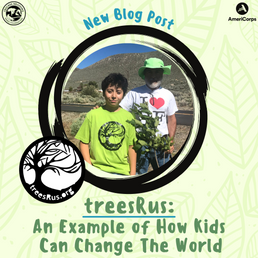Fourth of July Reflections
- Heidi Anderson, Executive Director
- Jul 4, 2022
- 3 min read
Heidi Anderson, Executive Director Truckee Meadows Parks Foundation
The Fourth of July is a big deal in our family for many reasons. The main reason being it is my husband’s birthday. Not only was he born on the fourth of July, but born in 1976. That’s right - he is a bicentennial baby to the day (don’t tell him I told everyone how old he is). In addition, both my husband and the majority of his family served in the military, he loves apple pie, he studies history like a teenager watches TikTok, and he coaches America’s pastime - baseball. He loves that his birthday is on the Fourth of July. When he was five, he thought the whole city was celebrating his birthday with him. As that five-year-old kid grew up to see both the strengths and faults of the country in a very hard way, this celebration looks a lot different.
It is easy to be discouraged on the Fourth of July when the country can seem like a big mess. From national tension, unemployment rates, inequalities, and school shootings; the list of issues seems to grow. But what some see as chaos, others see as an explosion of hope. They see it in the armies of people that took to the streets to protest racism, they see it in the companies that are taking unprecedented stands against gun violence, and they see it in the organizations fighting for social justice.

During the entire Fourth of July week, our family reflects on the centuries of fighting towards “freedom and liberty for all” along with acknowledging the fight that’s still to come. We build up hope this week as charging down the road to true “freedom and liberty for all” is a long road with lots of barriers. Our history is filled with stories of individuals and groups that helped build the road we now fight on. I would like to share with you one of these stories, and I hope you are able to glean some hope from one of my favorites below.
On July 9, 1776, just 5 days after the Declaration of Independence was adopted, a group of American colonists gathered together at a political rally in New York City for a public reading of the declaration. After hearing calls to “dissolve the political bands” of tyranny throughout the meeting, the group marched to a public park where a large statue stood of King George III, Britain’s ruler. The group knocked the 4,000 pound statue off its 15-foot pedestal. They didn’t stop there - they decapitated the head of the statue and perched it on top of a spike. Most of the remaining statue was then melted down to make 42,000 musket balls for American soldiers.
Even on the heels of a big win these individuals knew the fight wasn’t over. Erika Doss, an American studies professor at the University of Notre Dame, talks about the parallels between the colonists who fought against Great Britain and the protestors who rally against monuments today. “They’re patriots,” she says. “They’re looking at the symbols and these visual and martial emblems and icons in their midst, and they’re saying this doesn’t stand for who we are today”. They are doing what their ancestors did in 1776, Doss says: “They are reimagining themselves and the nation.”
Melanye Price, professor at Prairie View A&M University in Texas who specializes in African-American politics, says protestors who flood the streets today exemplify the revolutionary spirit of America just as much as the white colonists in powdered wigs. “The people who are out yelling in the streets today are no different than Paul Revere yelling ‘The British are coming!’” says Price. “It’s the American way to voice criticism of the government and to rebel against oppressive forces.”

The change we see today didn’t just happen. It has taken years of planning and activism, and it will take many more. But until then, I hope as you celebrate the Fourth of July you can look forward to a new, reimagined America.
Citations:
































google seo…
무료카지노 무료카지노;
03topgame 03topgame
gamesimes gamesimes;
Fortune Tiger…
Fortune Tiger…
Fortune Tiger…
EPS Machine…
EPS Machine…
seo seo
betwin betwin;
777 777;
slots slots;
Fortune Tiger…
谷歌seo优化 谷歌SEO优化+外链发布+权重提升;
google 优化 seo技术+jingcheng-seo.com+秒收录;
Fortune Tiger Fortune Tiger;
Fortune Tiger Fortune Tiger;
Fortune Tiger Fortune Tiger;
Fortune Tiger Slots Fortune…
站群/ 站群
gamesimes gamesimes;
03topgame 03topgame
EPS Machine EPS Cutting…
EPS Machine EPS and…
EPP Machine EPP Shape…
Fortune Tiger Fortune Tiger;
EPS Machine EPS and…
betwin betwin;
777 777;
slots slots;
Fortune Tiger Fortune Tiger;